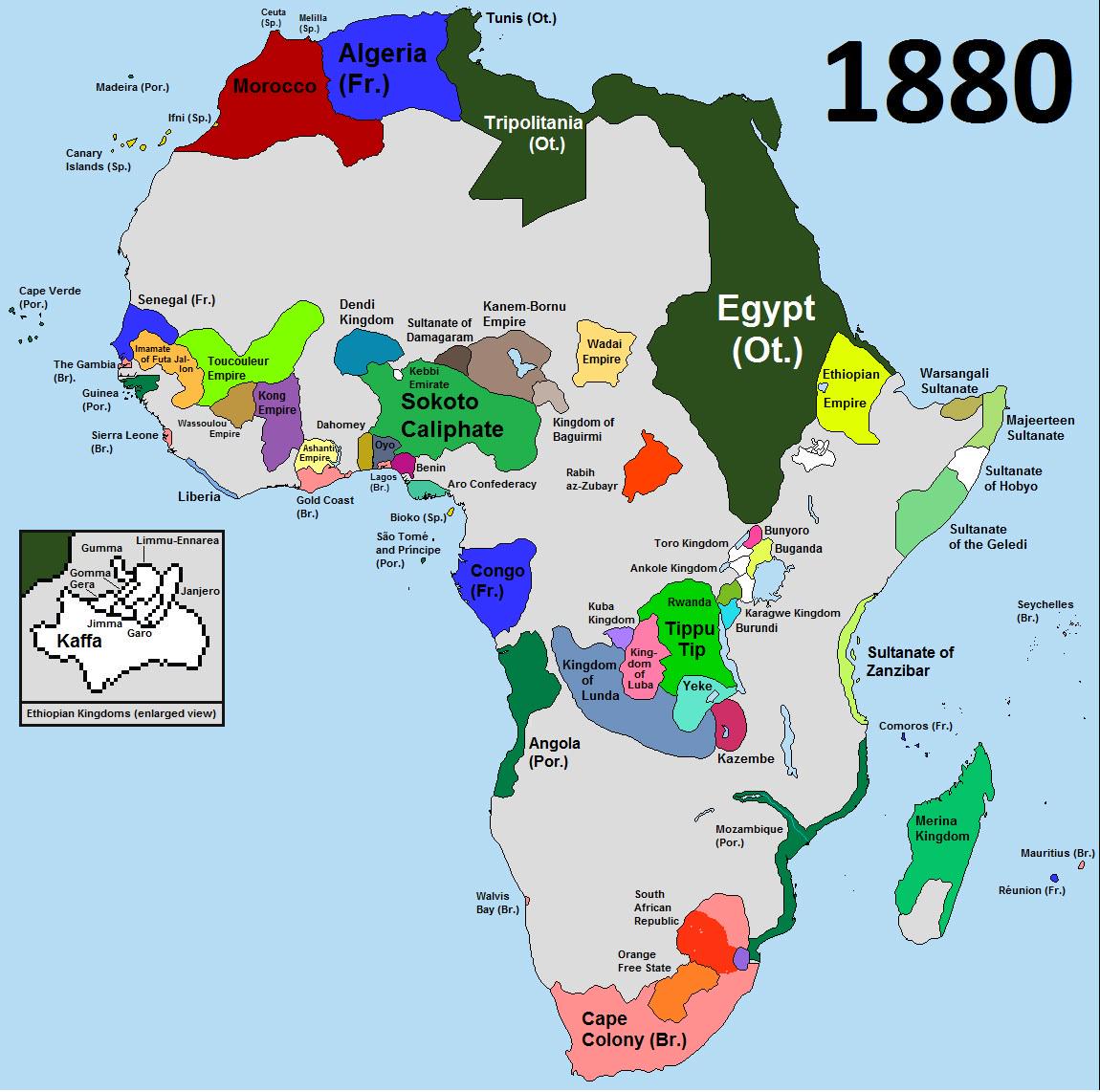Map of African States Before Colonization


Marcus Rodriguez
Historical Geography Expert
Marcus Rodriguez specializes in historical cartography and geographic data analysis. With a background in both history and geography, he brings unique...
Geographic Analysis
What This Map Shows\nThis visualization provides a historical perspective on the political landscape of Africa before the onset of European colonization. It illustrates the various states and kingdoms that existed across the continent, highlighting their territorial boundaries and relationships. The map serves as a reminder of Africa's rich tapestry of cultures, ethnicities, and political entities that thrived long before colonial powers imposed their governance.
Deep Dive into Pre-Colonial African Political Entities\nBefore the arrival of European colonizers in the late 19th century, Africa was home to a myriad of powerful states and complex societies. These were not merely tribal groups; they were organized political entities with sophisticated governance systems, trade networks, and cultural practices. For instance, the Kingdom of Mali, which reached its zenith in the 14th century, was renowned for its wealth derived from gold and its influential center of learning in Timbuktu.
Interestingly, the Kingdom of Axum in present-day Ethiopia is often cited as one of the first great civilizations in Africa, known for its monumental obelisks and early adoption of Christianity. The political landscape was dynamic, with kingdoms like Songhai, Ghana, and Kanem-Bornu playing critical roles in trade across the Sahara Desert, connecting sub-Saharan Africa to North Africa and beyond.
The Great Lakes region also showcased a variety of powerful states, such as the Kingdom of Buganda, which had a rich cultural heritage and a centralized political system. Meanwhile, in Southern Africa, the Kingdom of Zimbabwe thrived, known for its impressive stone ruins and trade in gold and ivory.
It’s essential to note that the political boundaries depicted on the map may not capture the full complexity of these societies. Ethnic groups often transcended state boundaries, and the relationships between neighboring states could range from trade partnerships to fierce rivalries. This interconnectedness fostered cultural exchange and economic interdependence, shaping the continent's history significantly.
Regional Analysis\nExamining the map more closely reveals distinct regional characteristics across Africa. In West Africa, for example, the rise of powerful empires such as Mali and Songhai was driven by the trans-Saharan trade. These states not only controlled trade routes but also became cultural melting pots, facilitating the spread of Islam and literacy through trade and scholarship.
In contrast, East Africa’s political landscape was influenced heavily by maritime trade with the Indian Ocean. The Swahili city-states, which included Kilwa and Mombasa, were thriving trade hubs that linked Africa with the Arab world and Asia. The impact of this trade is still evident today in the diverse cultures of coastal regions.
Southern Africa presented a different scenario, where decentralized chiefdoms and kingdoms, such as the Zulu and Xhosa, were prominent. These societies had rich oral traditions and social structures that played essential roles in their resilience against external pressures.
Significance and Impact\nUnderstanding the political landscape of Africa before colonization is crucial for several reasons. First, it challenges the narrative that Africa was a 'blank slate' before European intervention. The rich history of pre-colonial states demonstrates that African societies had their own forms of governance, economies, and cultural identities.
Moreover, recognizing this complexity helps to contextualize current issues in African countries, many of which are still grappling with the colonial legacy. The arbitrary borders drawn during the colonial period often disregarded ethnic and cultural lines, leading to ongoing conflicts and challenges in nation-building.
In recent years, there has been a growing interest in reconnecting with pre-colonial histories as African nations strive to reclaim their narratives. Educational initiatives and cultural revitalization projects are emerging, aiming to celebrate and honor the legacies of these historic states. By understanding the past, African countries can forge a more unified future that respects their diverse heritages.
Have you noticed how often the history of Africa is overlooked in broader discussions about global history? This map serves as an important reminder of the continent's vibrant past and the need for a more nuanced understanding of its role in world history.
Visualization Details
- Published
- September 27, 2025
- Views
- 52
Comments
Loading comments...